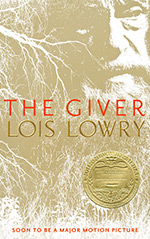
![]() Rhondak101
Rhondak101
2/9/2014
![]()
The community of Lois Lowry’s The Giver is very efficient, based on the concept of Sameness. The community’s Elders control a person’s whole life. Families are formed by application. People apply for the right to marry (but I’m not certain if the book ever uses that word). When a proper match is found, the male and female are allowed to live together. When they want a child, they apply to the Center, and after and evaluation, a one year old is awarded to them at the very special December ceremony. This ceremony also celebrates each child’s moving to the next stage of their maturation, from Twos to Threes, Threes to Fours, and so on up until they reach Twelve. At the ceremony, the family is told the name of their child, a unique name, different from everyone else’s in the community. Each family may raise a boy and a girl. Once the children are raised, the parents are moved to the Home for Childless Adults until it is time to move them to the House of the Old. After the children are raised, they never see their parents again. Every part of the citizens’ lives is planned. They are told at what age they may begin riding a bike, what their career will be, and when they will die.
In order to create, such a homogenous society, memories and most feelings are erased from the citizens. While people can still feel nervous, fearful, pleased and other such emotions, they don’t experience love or hate or anger or happiness. In fact, the word love is forbidden, as it is deemed imprecise. All emotional extremes have been eliminated to create a tolerable middle. However, for this system to work, the memories of what life was like before the Sameness--a world that had snow, sunshine, hunger, love, loss, war, pain, and grandparents—must be held in the memory of one man—the Receiver of Memory.
In the beginning of the novel, the protagonist, Jonas, is an Eleven on the cusp of becoming a Twelve, when he will learn what his career will be. At the ceremony, he is selected to become the Receiver of Memory, a position that he didn’t know existed but a very high honor nonetheless. As he begins his training, the current Receiver becomes a Giver and begins to transmit to Jonas the whole of the past culture, one memory at a time. As Jonas learns about the good and the bad of living, he realizes how bereft their lives really are. He believes that the people should be allowed to see their world the way it really is and to make their own choices. Surprisingly, the Giver believes the same, and they devise a plan....
As a relatively short YA novel (by today’s standards, at least), The Giver manages to communicate a lot about Jonas’ world in a short space. The world seems fairly complete. There are only hints and glimpses of the backstory, the time before the Sameness, but these hints also help communicate why a world might decide to eliminate difference, memory, and feelings. A weakness of the novel is: many of Jonas’ decisions and reversals occur without little internal or external exploration or discussion. For example, Jonas, who was picked to be the Receiver and a potential Elder, was chosen because he followed rules so well and always made “the correct” choice. Subsequently, his change to believing the whole system is wrong happens a bit too quickly and silently for my tastes. While I know this IS the whole point of the book, I’d like to see him struggle more against challenging the system, a system that so carefully indoctrinates its citizens. There is one reason that this might have happened more easily for Jonas, but I’m not going to reveal it here—just say if that was what Lowry intended, she should have explained it more clearly.
Besides this quibbling, the book is well-written and enjoyable. It gives the readers a lot to think about, including censorship, which is ironic since this book has been frequently challenged as inappropriate for adolescents by parents and school systems. Frankly, I don’t understand the reasons for challenging this book, but I rarely do. So... go make a strike against ignorance and censorship, read a banned book, and you could start with this one.